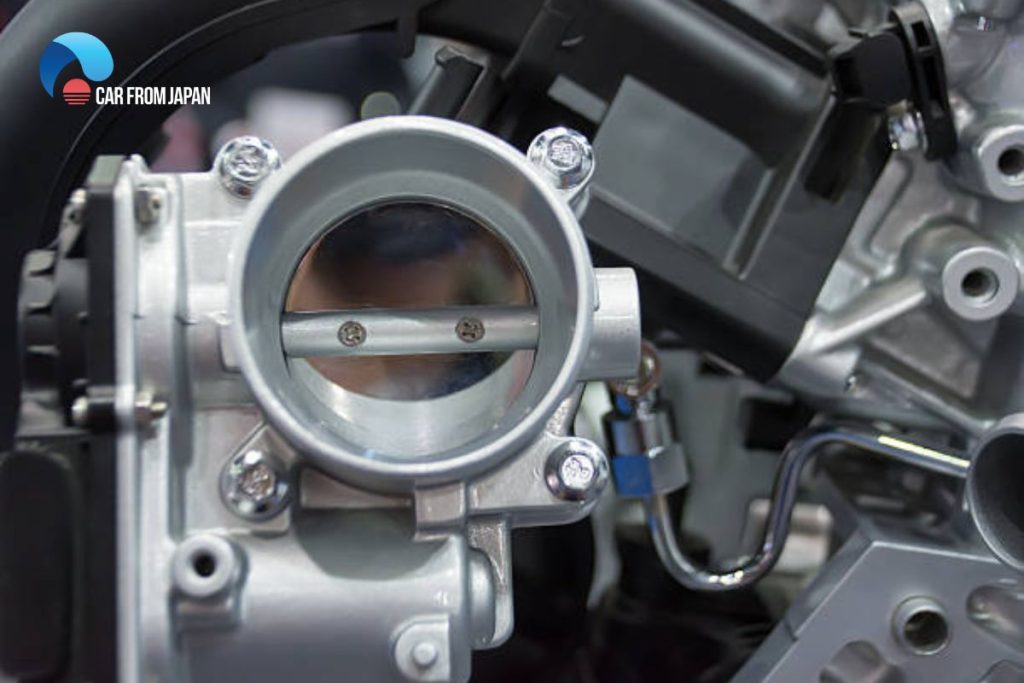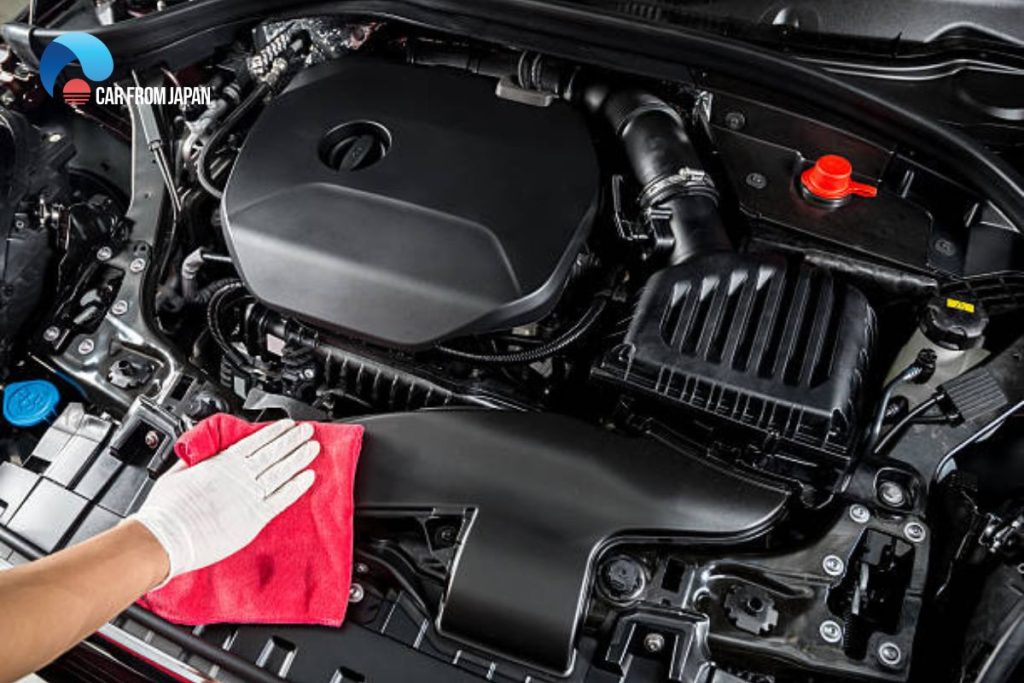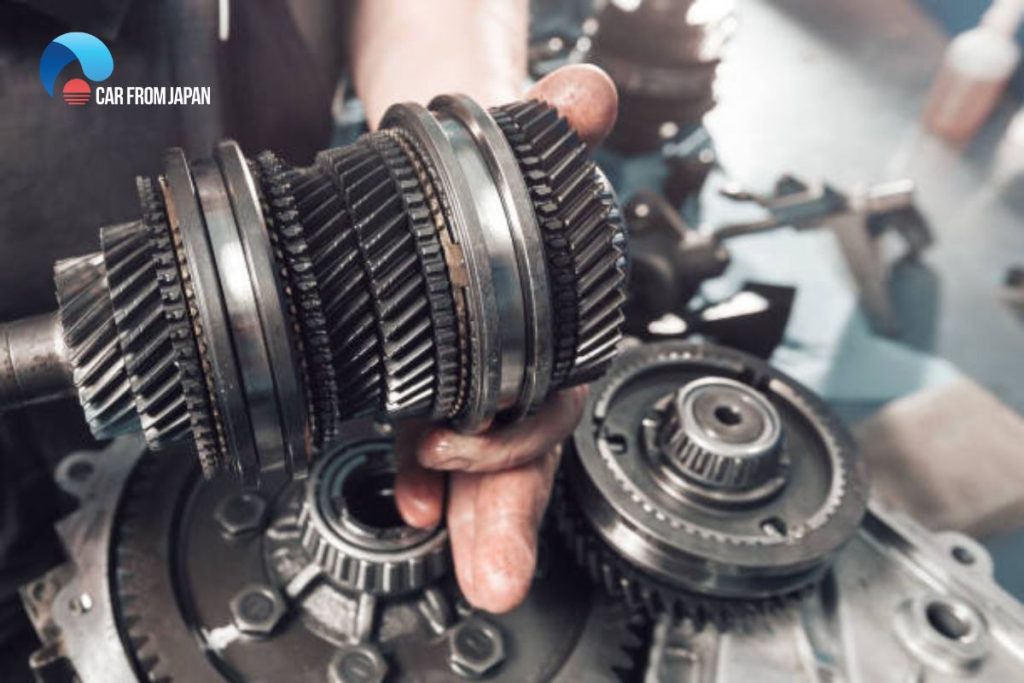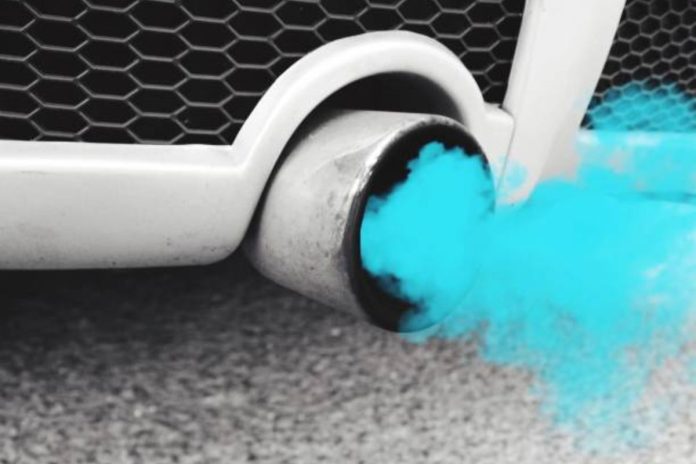Blue smoke coming out of the exhaust is a warning signal that you can not ignore. It is never a good signal and can indicate several problems. But if you spot it early, know what to do, and act on it, these problems can be fixed.
To make everything easier for you, in this article, we are going to show you what blue smoke is, why you see blue smoke from exhaust, as well as the effective ways to fix it.
Are you ready? Let’s roll up our sleeves and start now!
Contents
What Does Blue Smoke From Exhaust Mean?
Blue smoke is a clear sign telling your car engine is burning oil. What happens is that the piston rings or the valve guide seals, or other components of the engine are worn or broken, causing oil to leak.
The oil will flow into the combustion chamber, then it is being burnt together with the fuel, creating blue smoke. It also creates an awkward smell and is not good for your health to breathe in.
What Causes Blue Exhaust Smoke?
There are a number of reasons responsible for blue smoke coming out of the exhaust. In this article, we divide these reasons into 2 groups: blue smoke exhaust when starting and blue smoke from exhaust when accelerating.
What makes blue smoke from exhaust when starting?
Lots of blue smoke when starting cars (not diesel): Bad valve seals
If you see blue smoke coming out of the exhaust after you have parked your car for a while and the engine is not a diesel, the probable culprit is bad valve seals.
Each engine has valves that open and close. These valves are manufactured to open mechanically by pressure from a Rocker Arm. They let air and gasoline come into the engine. After the combination of air and gasoline has been burned, they also let the exhaust gas out of the engine.
Oil is used to cover the top of the valves where the rocker arm applies pressure. There are valve seals to prevent this oil from flowing into the engine. If these valves are worn or broken, the oil will come into the engine, then be burned along with the air and gasoline, causing blue smoke.
Blue smoke occurs when starting a diesel car: Damaged glow plug
When starting up a diesel engine, we need to use a glow plug to cause the ignition of diesel fuel. Once the engine is warmed up, the use of the glow plug is not necessary as the heat of the engine ignites diesel fuel.
If a diesel engine has a bad glow plug, it will create blue smoke at startup until it has warmed up.
What makes blue smoke from exhaust when accelerating?
Stuck PVC valve

If you observe blue smoke appearing in your car all the time, PCV (Positive Crankcase Ventilation) Valve will be the first thing you should check.
The function of the PCV valve is to release the pressure (which builds up in the Oil Pan) into the Intake Manifold (where the engine gets its air for running). The intake Manifold is linked to the Air Filter of your engine too.
So if the PCV valve gets stuck, it will keep mixing the oil with air and other gasses inside the engine. The combustion of this mixture will cause blue smoke.
Worn engine
Worn engine is another culprit responsible for the blue smoke from exhaust issue.
Each engine has pistons which move up and down a cylinder. Each piston has metal rings round its side like bracelets. The function of these rings is to help the piston to form a tight seal against the cylinder.
So if the ring or cylinder is worn out, oil from below the piston will come up. Then the oil gets mixed with the air and gasoline and gets burnt, causing the blue smoke.
Blown turbo
A blown turbo is a probable reason for causing blue smoke from tailpipe of turbo cars. Blue smoke will suddenly appear in a big cloud if your car blows a turbo.
It is either the turbo casing damaged or a broken oil seal in the turbo. In both cases, they let oil into the intake of the engine.
Transmission fluid loss
A modulator is used to control the transmission shift in older vehicles with vacuum-controlled automatic transmissions. If there is any problem with the modulator like failed diaphragm, it enables the engine to suck in transmission fluid.
Then these transmission fluids will be burnt like oil, creating the blue smoke coming out of exhaust.
How To Get Rid Of Blue Smoke From Exhaust?
As blue smoke coming out of exhaust can be caused by some of the reasons mentioned above. So to get rid of blue smoke, you should find the cause and fix it as soon as possible.
Here are some effective methods to fix the problems of blue smoke from car.
Clean the engine

Poor maintenance can cause sludge accumulation inside the engine. As a direct result, oil reaches the combustion chamber and causes blue smoke, a direct result of clogged cylinder heads. The solution for this issue is however simple.
First of all, remove the valve cover and do the necessary cleaning to rid your engine of debris. Despite various types of engines, the first thing which can cause blue smoke is surely the engine.
Clean the drain back holes carefully and recheck and reassemble them. After the mending job, wait for 2 or 4 more days for the remaining oils to clean away.
Fix valve seals
Replacing valve seals is not too hard and can be done at home by someone who can work on engines comfortably. The big thing to bear in mind is to not drop the Valve into the engine.
So to keep the valve up, some people often use compressed air put in via the spark plug opening.
The work of changing the valve seals will be dependent on whether the engine has an overhead cam or not. If your engine has an overhead cam, it will require more work as we need to remove it to access the valve stem.
The objective is to remove springs from the valve and the rocker arm. The next things to do are to lift the old valve stem, seal the valve stem and replace it with the new one. You can use some special tools to compress the valve spring and remove it out of the way.
Fix the bad glow plug
If your car has a glow plug, the best thing you should do is replace it with a new one.
Fix the PCV valve
Fixing PCV Valve is simple and cheap as well. To do this, you need to look for a tube that links to the Intake Manifold. Keep following the tube back until you see your PCV Valve. Then take out the old PCV Valve and replace it.
Fix blown turbo
It is not a good idea if you drive a car with a blown turbo. This is because bits of metal will be created due to the lack of oil in the turbo. Then these bits of metal will come into the engine and damage the engine.
So before you fix the turbo, you should investigate what damage the bad turbo can cause. If the turbo did not break into small pieces, then you may be lucky. In this situation, you just need to rebuild it or replace it.
If it breaks into small pieces, you may need help from a mechanic as your engine is damaged.
Fix transmission modulator

To fix the transmission modulator you should locate its position, then remove it and replace it with a new one. You also need to replace the vacuum line if damaged by transmission fluid.
Check out the video from Car Throttle to see what your exhaust smoke is trying to tell you:
FAQs
Is blue smoke from exhaust dangerous?
While blue smoke itself isn’t directly dangerous, the underlying cause can be. Continued oil burning can lead to:
Reduced engine performance: Oil burning can foul spark plugs and reduce compression, leading to power loss.
Increased emissions: Burning oil releases harmful pollutants into the environment.
Engine damage: If the problem isn’t addressed, it can lead to severe engine damage.
Can wrong oil cause blue smoke?
Yes, using the wrong type of oil can contribute to blue smoke from your exhaust. Oil that is too thin for your engine may not properly lubricate the piston rings and valve stem seals, allowing oil to seep past them and burn in the combustion chamber. This can lead to the characteristic blue smoke. Always consult your vehicle’s owner’s manual to determine the correct oil viscosity and type for your engine.
Can I prevent blue smoke from exhaust?
Regular maintenance can help prevent some causes of blue smoke, such as:
– Regular oil changes: Using high-quality oil and changing it according to the manufacturer’s recommendations can help prevent oil breakdown and leaks.
– Checking for leaks: Regularly inspecting your engine for oil leaks can help identify problems early on.
What are other colors of exhaust smoke and what do they mean?
– White smoke: Often indicates coolant burning in the combustion chamber, which can be a sign of a blown head gasket.
– Black smoke: Usually means the engine is running rich (too much fuel), which can be caused by a clogged air filter or faulty fuel injectors.
Conclusion
Blue smoke billowing from your exhaust is a clear signal that something isn’t right under the hood. While it might seem like a minor annoyance, it’s often a symptom of more serious issues like worn piston rings, faulty valve stem seals, or even turbocharger problems. Ignoring this warning sign can lead to decreased engine performance, increased emissions, and potentially catastrophic engine damage.
Did you enjoy our article? Anything, in particular, you may have in mind? If so, don’t hesitate to ask in the comments section.




I have subaru forester stb type a2.0 tuthi, sometimes it smokes blue, i found engine oil in the intercooler, what should i do to fix the problem
I have subaru forester stb type a2.0 turbo, sometimes it smokes blue, i found engine oil in the intercooler, what should i do to fix the problem
Hey! I understand this is somewhat off-topic but I needed to ask.
Does building a well-established website like yours require a lot
of work? I’m brand new to writing a blog but I do write in my journal everyday.
I’d like to start a blog so I will be able to share my personal experience and views online.
Please let me know if you have any kind of suggestions or tips for
new aspiring bloggers. Appreciate it!
I can help you with a blog site I’m a web developer
If you desire to obtain much from this article then you have to apply such techniques to your won weblog.
Appreciate the recommendation. Let me try it out.
U welcome. And thank you. We will provide more useful information like this. Stay tuned
I have a 2002 Suzuki Grand Vitara,its smoking seriously, i have spent so much money, repeatedly changed the engine oil,added oil treatments, but it’s still smoking .Please what else can I do?
I recently change my piston ring but after that blue smoke out before it was white and engine pulling is poor help me out what to do
I don’t think it’s a good sign to see the cloud of smoke after putting the pedal down. Can anybody tell me- what it actually means? A motorist can take a thin and smaller amount of smoke for granted, but if the speed machine is blowing too much and in a continuous manner, that means the road companion is sick. And if the color of the smoke is ‘blue’, that means oil is burning. It may be either due to leak or any mechanical wear. So, whenever you encounter such situation, instead of being panicked, you should call a car expert who can fix the issue effortlessly and assure you more safety and risk-free functionality.
Just a quick question regarding PCV Valve replacement…
Once the PCV has been replaced could you still get smoke from the exhaust whilst residue in the system burns off? If yes, how long would this last?
I replaced my 350z’s pcv valve along with replacing 2 pcv hoses because why not, my car still smoked blue so I’d guess that in theory, yes its from the left over oil that is in the manifold, just replacing the valve wont eliminate the smoke, I am not quite sure how long it would take but a good estimate would be around 2 weeks if you’d drive your car daily. If it doesn’t stop then it could be something else like piston rings and so forth (its a very late reply but just leaving it in order for others to know)